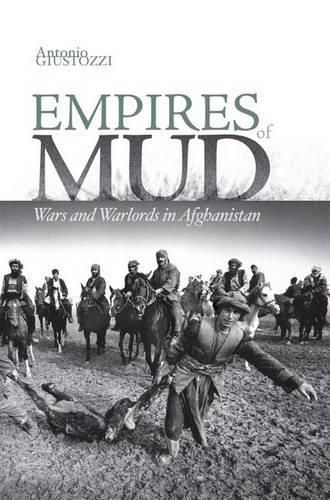Readings Newsletter
Become a Readings Member to make your shopping experience even easier.
Sign in or sign up for free!
You’re not far away from qualifying for FREE standard shipping within Australia
You’ve qualified for FREE standard shipping within Australia
The cart is loading…






Warlords, namely charismatic military leaders who exploit the weakness of central authorities to seize control of and autonomously rule a sub-national area, have earned much notoriety in recent years on account of the excesses of civil wars in Liberia, Somalia and Afghanistan. But notwithstanding their bad reputation, warlords have often participated in state formation. In Empires of Mud, Giustozzi analyses the dynamics of warlordism in Afghanistan within the context of such debates. He approaches this complex task by first analysing aspects of the Afghan environment that might have been conductive to the fragmentation of central authority and the emergence of warlords and then accounts for the emergence of warlordism in the 1980s and subsequently the lion’s share of this book consists of an in-depth analysis of the systems of rule–political, economic,
military–which developed under Afghanistan’s two foremost warlords, Ismail Khan and Abdul Rashid Dostum, both of whom still wield considerable power even after the intervention of Allied forces in Afghanistan in 2001. Their two systems are compared, highlighting convergences and divergences, in order to explain how warlords administer the areas that they control within so-called failed states, in the process challenging much of the received wisdom in scholarly and policy circles about warlordism. The author also discusses Ahmad Shah Massoud, whose system incorporated elements of rule not dissimilar from that of the warlords. Giustozzi concludes that although charismatic leaders play a key role in shaping the specific characteristics of each warlord polity, there are some common elements that underlie the emergence of warlordism. In particular, the role of local military leaders and their gradual acquisition of a form of class consciousness appear to be key processes in allowing the formation of warlord polities, while the latter have repeatedly shown the ability over time to evolve in to more sophisticated, state-like, or political party-like, structures.
$9.00 standard shipping within Australia
FREE standard shipping within Australia for orders over $100.00
Express & International shipping calculated at checkout
Warlords, namely charismatic military leaders who exploit the weakness of central authorities to seize control of and autonomously rule a sub-national area, have earned much notoriety in recent years on account of the excesses of civil wars in Liberia, Somalia and Afghanistan. But notwithstanding their bad reputation, warlords have often participated in state formation. In Empires of Mud, Giustozzi analyses the dynamics of warlordism in Afghanistan within the context of such debates. He approaches this complex task by first analysing aspects of the Afghan environment that might have been conductive to the fragmentation of central authority and the emergence of warlords and then accounts for the emergence of warlordism in the 1980s and subsequently the lion’s share of this book consists of an in-depth analysis of the systems of rule–political, economic,
military–which developed under Afghanistan’s two foremost warlords, Ismail Khan and Abdul Rashid Dostum, both of whom still wield considerable power even after the intervention of Allied forces in Afghanistan in 2001. Their two systems are compared, highlighting convergences and divergences, in order to explain how warlords administer the areas that they control within so-called failed states, in the process challenging much of the received wisdom in scholarly and policy circles about warlordism. The author also discusses Ahmad Shah Massoud, whose system incorporated elements of rule not dissimilar from that of the warlords. Giustozzi concludes that although charismatic leaders play a key role in shaping the specific characteristics of each warlord polity, there are some common elements that underlie the emergence of warlordism. In particular, the role of local military leaders and their gradual acquisition of a form of class consciousness appear to be key processes in allowing the formation of warlord polities, while the latter have repeatedly shown the ability over time to evolve in to more sophisticated, state-like, or political party-like, structures.